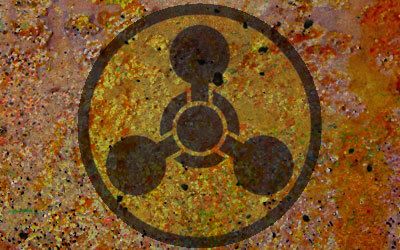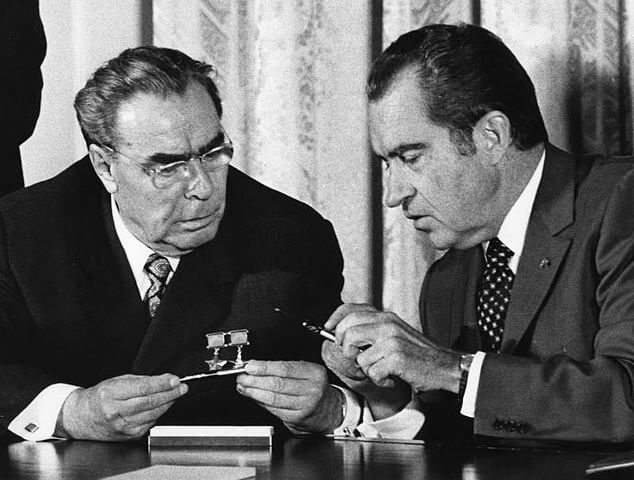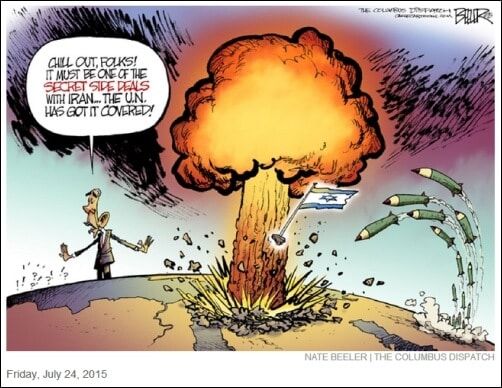Today’s Top Stories
1. Police clashed with Palestinians on the Temple Mount yesterday, during the Jewish holiday of Tisha B’Av. The Jerusalem Post posted footage of Palestinians barricaded in the Al-Aqsa Mosque throwing rocks and firecrackers at police.
The rioting took place as tens of thousands of Jews fasted and made a pilgrimage to the Western Wall amid oppressive heat to mourn the destruction of the First and Second Temples that once sat atop the contested holy site.
According to Police spokesman Micky Rosenfeld, officers entered the compound shortly after 7:30 a.m., after receiving intelligence that a large group of masked Palestinian youths barricaded themselves overnight in al-Aksa Mosque to attack Jewish visitors on Sunday morning.
See below for more on the clashes.
2. Latest talk coming out of Washington is that the Obama administration will not object to Jonathan Pollard’s release in November — in hopes of smoothing ties rocky ties with Israel. Pollard, who has been imprisoned for 30 years for spying for Israel, is next eligible for parole this coming November.
The Wall St. Journal (click via Google News) and New York Times have more on the Pollard story. AP’s Matt Lee tweets that it’s not as dramatic as you’d think . . .
Jonathan Pollard release has always been envisioned for November, 2015, when he is eligible. Unless he’s getting out earlier, it’s not new.
— Matt Lee (@APDiploWriter) July 24, 2015
3. International monitors responsible for removing Syria’s chemical weapons told the Wall St. Journal (click via Google News) that Assad cheated and hasn’t given up everything he was supposed to. This snippet sounds like a prelude to Iran.
Because the regime was responsible for providing security, it had an effective veto over inspectors’ movements. The team decided it couldn’t afford to antagonize its hosts, explains one of the inspectors, or it “would lose all access to all sites.” And the inspectors decided they couldn’t visit some sites in contested areas, fearing rebels would attack them.
Under the terms of their deployment, the inspectors had access only to sites that the Assad regime had declared were part of its chemical-weapons program. The U.S. and other powers had the right to demand access to undeclared sites if they had evidence they were part of the chemical-weapons program. But that right was never exercised, in part, inspectors and Western officials say, because their governments didn’t want a standoff with the regime.

Israel and the Palestinians
• The firecrackers from yesterday’s Temple Mount clash were obtained en masse from an eastern Jerusalem toy store that police raided. According to YNet:
Investigators said that the gunpowder found inside the fireworks was used in the past as an explosive in makeshift pipe bombs.
• In an interview on Israeli radio, Arab MK Masud Ganaim denied the Temple Mount ever held a Jewish temple:
When asked if a Jewish temple ever existed at the site, Ganaim said, “No, no.”
“As a history teacher I know this… Perhaps it is known [that there was a temple somewhere], but not there, not there. You are welcome to go look for the Temple in a different place, at a different time,” Ganaim said.
 • It’s been almost 15 years since Ariel Sharon’s controversial visit to the Temple Mount, which is ancient history in blog years. It still gets my goat that papers like The Independent today still believe Sharon’s visit sparked the second intifada.
• It’s been almost 15 years since Ariel Sharon’s controversial visit to the Temple Mount, which is ancient history in blog years. It still gets my goat that papers like The Independent today still believe Sharon’s visit sparked the second intifada.
In 2000, a visit by then Israeli prime minister Ariel Sharon in the midst of collapsing peace talks caused what became known as the “Second Intifada” where thousands of Palestinians died in an uprising.
It’s already been confirmed by Suha Arafat and former PA cabinet minister Imad Faluji that Yasser Arafat planned the second intifada well before Sharon’s Sept. 28, 2000 walkabout.
• A wanted Palestinian died trying to escape an IDF arrest raid in the Kalandiya refugee camp last night. Mohammed Abu Latifa, 19, fell from a rooftop while trying to jump across to another roof. Palestinians claim Latifa was simply shot dead and did not fall. More at the Jerusalem Post and Reuters.
• The Times of Israel reports that chief negotiators Silvan Shalom and Saeb Erekat held low-key talks in Amman to calm Israeli-Palestinian tensions.
• Summertime means Hamas summer camps are open. AFP reports that 25,000 people are getting two weeks of training in “military techniques,” firing a rifle, and first aid. This year, the camps are open to anyone between the ages of 15-60. AFP coverage.
• The PA has denied Israeli media reports that Mahmoud Abbas intends to resign in the next two months “due to fatigue.”
• Google removed a Hamas app from its Android store
• On the 10th anniversary of the Gaza disengagement, Israeli ambassador Ron Prosor addressed the UN Security Council on what has changed and the lessons learned. Take your pick of the transcript or video.
• Two suspects are expected to be indicted on Wednesday for the arson attack in June on the Church of Loaves and Fishes in Tabgha, by Lake Kinneret. Details at Haaretz.
Iranian Atomic Urgency
• Israeli officials are rejecting US “intimidation” after several administration officials gave a highly dubious anonymous “briefing” to Haaretz.
• CNN: John Kerry said Israel will be blamed if Capitol Hill lawmakers vote down the Iran deal. The Secretary of State was speaking at a Council on Foreign Relations event in New York. If it interests you, the CFR posted the full hour-long video of Kerry’s appearance.
• Iran vows to buy weapons anytime, anywhere
• Owen Alterman of The Hill draws attention to one overlooked point in the Iranian deal — paragraph 36. It’s an “exit ramp” that could be attractive for a future US president or the mullahs:
Iran might need to wait a little longer—an extra 30 working days—to check a box buried in Annex IV. But, after that, under Paragraph 36, Iran can claim that any of the P5+1 is “not meeting its commitments” under the agreement. That triggers a 35-day set of meetings. Once that clock runs, Iran can claim the issue “has not been resolved to [its] satisfaction” and that it “deems” that the issue “constitutes significant non-performance.” Iran can then “cease performing its commitments under this JCPOA in whole or in part.” The agreement is done.
Once Iran has received its $150 billion and locked in long-term business contracts with the West, this quick exit could be an attractive option.
• Kerry has ‘intense exchange’ with American Jewish leaders over Iran deal.
• Congressmen want a more full accounting of the possible military dimensions of Iran’s nuclear program, but the Obama administration says full disclosure isn’t critical to verify future commitments. The Wall St. Journal (click via Google News) takes a closer look at the issue.
• There was some Israeli media buzz over a silver Mercedes with Saudi license plates spotted in Jaffa near the town’s historic clock tower.
Mideast Matters
• Hezbollah 3.0: How Israel’s No. 1 enemy is preparing for the next Lebanon war
• In his first public address in about a year, Syrian President Bashar Assad admitted his army is too short on manpower to be able to control the entire country.
“Sometimes, in some circumstances, we are forced to give up areas to move those forces to the areas that we want to hold onto.”
Commentary/Analysis
• Just as American Jews fought against Nixon administration’s policy of detente 40 years ago, American Jews can and must stand up against the Obama administration’s nuclear deal with Iran. Natan Sharansky makes a compelling argument.
Today, an American president has once again sought to achieve stability by removing sanctions against a brutal dictatorship without demanding that the latter change its behavior. And once again, a group of outspoken Jews — no longer a small group of dissidents in Moscow but leaders of the state of Israel, from the governing coalition and the opposition alike — are sounding an alarm.
Of course, we are reluctant to criticize our ally and to so vigorously oppose an agreement that purports to promote peace. But we know that we are again at a historic crossroads, and that the United States can either appease a criminal regime — one that supports global terror, relentlessly threatens to eliminate Israel and executes more political prisoners than any other per capita — or stand firm in demanding change in its behavior.

• Iran’s supreme leader, Ayatollah Ali Khamenei, tweeted a provocative image of President Barack Obama about to shoot himself in the head. But what’s bothering Washington Post columnist Colbert King?
• The Columbus Dispatch‘s Nate Beeler got my head space on the side deals Iran cut with the IAEA.
• Lebanese writer Hussain Abdul-Hussain describes what a better deal might have looked like. One particular item caught my eye:
As a prerequisite for Iran maintaining a nuclear program, Tehran should recognize all other member states at the UN, including Israel. This does not mean that Tehran should befriend Tel Aviv or exchange embassies, but while antagonism against the Israeli occupation of Palestinian territories is one thing, promising to wipe Israel out is another.
• Plenty more commentary on the Iran deal . . .
– Eyal Zisser: Europe’s misplaced morality
– James Woolsey: Deal surrenders to world’s leading terror sponsor
– Jeff Jacoby: Iran can buy a lot of terror with $100 billion
– Mordechai Kedar: How come America is still “The Great Satan” in Iran?
– Melanie Phillips: Arming all sides for nuclear war
– John Bolton: The consequences of a bad deal with Iran
• Here’s what else I’m reading this weekend . . .
– Nadav Shragai: IS and PLO flags on the Temple Mount
– Irwin Stelzer: This EU labelling is bad for Israelis and Palestinians
– Reuven Berko: The false tale of ‘apartheid’
– Vijeta Uniyal: Is India dumping the Palestinian cause?
Featured image: CC BY Pete via flickr with additions by HonestReporting
For more, see yesterday’s Israel Daily News Stream and join the IDNS on Facebook.


